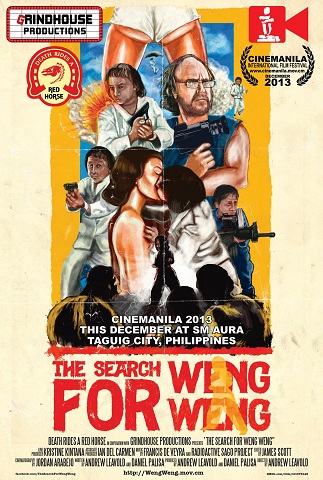Filtered By: Lifestyle
Lifestyle
Movie review: ‘The Search for Weng Weng’ tells untold stories
By REN AGUILA
It was at a screening of Gerry de Leon's "Lilet" where your correspondent first met Australian film scholar and one-time video store owner Andrew Leavold. He has been in and out of town for more than seven years, befriending a number of people in the Manila film scene. Part of the reason was that he wanted to find out more about a movie that changed his life.

Ernesto de la Cruz, a diminutive stuntman known by his stage name Weng Weng, appeared in one of the very few films to make it big in the Marcos-sponsored Manila International Film Festival. The James Bond homage "For Your Height Only" made him the first genuine Filipino international star, as it was shown with some success in several international markets. His life and the context of it is the subject of Leavold's new documentary "The Search for Weng Weng" (Grindhouse Productions, 2013).
A proper appreciation of Leavold's efforts should begin with his overall research field: the pulp cinema scene of the 1960s through the 1980s. There is some reticence, I suspect, in tackling this field among most people who write about Filipino cinema.
However, it continues to be embarrassing that, as noted earlier, it was a pulp cinema icon’s action flick that got sold at that 1982 event, not, say, one of the films by the big names in the “second Golden Age” of Filipino films.
That film made its way into Leavold’s former business, Australia’s largest “trash video” store dealing mainly in B-movies. The search for that enigmatic figure led him to explore this almost unremarked phase in our cinematic history, something which this documentary celebrates.
The journey Leavold takes involves everything from encounters with film figures from the past, to the cultural politics of the era (including key players Imee Marcos, now governor of Ilocos Norte, and her mother Imelda, now a congresswoman), and the rise and fall of Weng Weng’s career at the hands of a couple who, as an interviewee bluntly put it, saw filmmaking more as a business than a craft. I will leave it to readers to learn about how exactly this transpires if they have the chance, but it is safe to say that it is a cautionary tale, and one which still resonates.
Watching "Weng Weng" brought to mind, for instance, the 2011 interview with a filmmaker about why he preferred to hire theater actors for his independent films. Such problems have never gone away, but it was the row over that interview that led to the founding of the Theater Actors’ Guild.
The film itself is a tight weave of film clips, interviews, and the story of de la Cruz, told in part in pencil sketches by illustrator Ronald Tan. There are moments of light humor and unintentional surrealism, especially in the Ilocos Norte sequence where Leavold and crew visit the former First Lady. The story ends on a note that is as abrupt as the end of de la Cruz’s career, avoiding a sentimentalism that would have otherwise ruined the moment. Finally, the credit sequence is worth staying for if only to get a sense of how Leavold, more than anyone else I know writing on Filipino cinema, has done his homework. (Not to mention an interesting and catchy banjo-driven homage to the man himself.)
"The Search for Weng Weng" is a good introduction to the almost-forgotten popular cinema of the era, and this and other efforts such as the Gerardo de Leon Centennial draw attention to the need to keep our cinematic heritage alive, whether it is the kind of cinema that gets canonized by the cultural gatekeepers, or even the kind that, for all the entertainment they did provide, is merely forgettable. Both the films, and the stories behind them, need to be documented, and Leavold is laying down a challenge I hope will be taken. — BM, GMA News
"The Search for Weng-Weng" will be shown as part of the Cinemanila International Film Festival, the films of which will be shown in SM Aura cinemas from December 18 to 22.
More Videos
Most Popular



